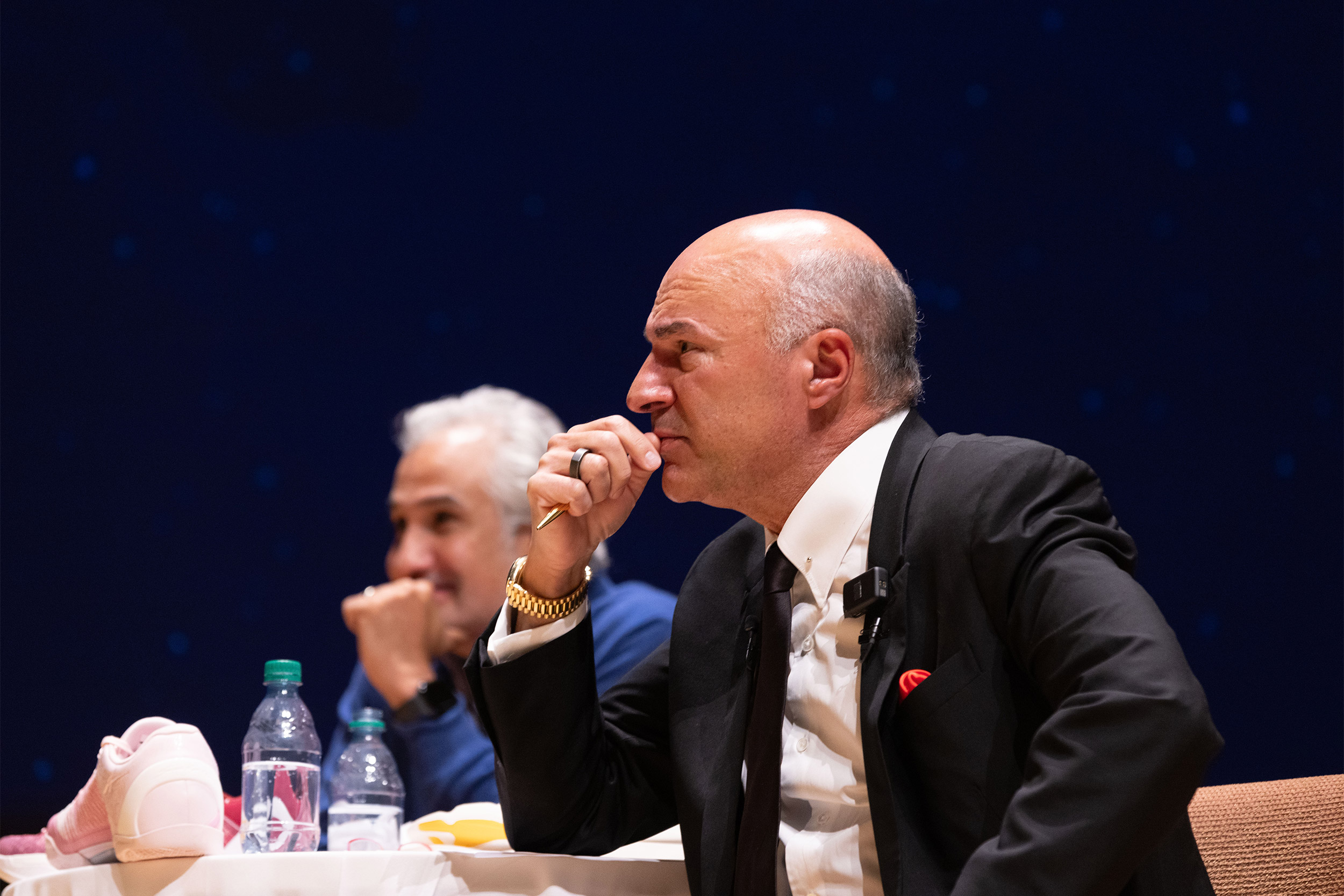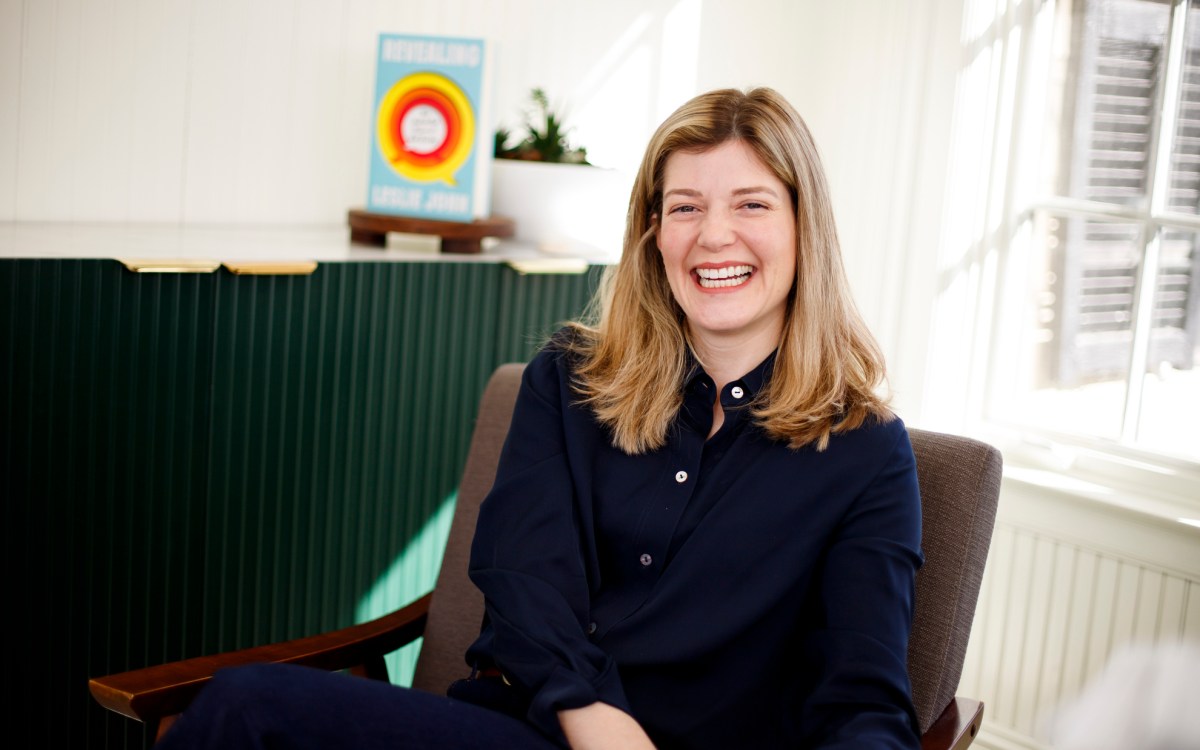
Crop Diagnostix co-founder and CEO Brandon Chi, M.B.A. ’24 (left), shares a leaf sample with Kevin O’Leary (far right) and Reza R. Satchu, senior lecturer at HBS.
Photos by Evgenia Eliseeva/Eve Photography
‘Shark Tank’s’ Kevin O’Leary talks startups and setbacks
Celebrity entrepreneur shares insights and judges Harvard startup pitch competition
America is in the midst of a startup boom. More than 5 million businesses were formed in 2022 — a 42 percent increase from pre-pandemic levels — and the U.S. Census Bureau recently reported continued strength in business creation through the first nine months of 2023.
During a time of unprecedented business creation, what does it take for a founder to develop a product or service, raise capital from investors, and grow from a small business into a larger enterprise?
In an event co-hosted by Harvard Business School and the Harvard Innovation Labs, celebrity entrepreneur, investor, and “shark” on ABC’s “Shark Tank” Kevin O’Leary answered these questions in front of a full audience at Klarman Hall. As O’Leary spoke with Reza Satchu, senior lecturer in entrepreneurship management at HBS, he touched on a range of topics, from how he built his personal brand to the elements of a successful pitch. Throughout the conversation, O’Leary encouraged the audience to pursue entrepreneurship.
“The hardest thing [about entrepreneurship] is not the failing, because you will fail. Most entrepreneurs fail multiple times before they achieve success. It’s to take the first step … You will be making decisions of consequence every day and you will hone your managerial and executional skills. And that becomes very valuable,” said O’Leary.
O’Leary also shared that as a startup investor or founder, setbacks are inevitable. He noted his dealings with FTX, a multi-billion-dollar cryptocurrency exchange that collapsed in 2022. O’Leary recalled an interview he did with CNBC shortly after FTX failed, where he offered a venture capitalist’s perspective on startup failure.

“He [Sam Bankman-Fried] paid me $16 million on the FTX exchange, and I was wiped out … But what I said [to CNBC] was I’m a venture investor. Eight out of 10 deals I do go to zero for various reasons: market changes, execution excellence not there, sometimes fraud, which is being alleged here and … being tried this week as we sit here. All of these reasons take deals to zero. It doesn’t change anything for me. I’m still going to invest the next morning,” said O’Leary.
While O’Leary does not expect all of his startup investments to succeed, he stressed the importance of questioning founders before making an investment. When evaluating entrepreneurs who appear on “Shark Tank,” O’Leary explained that he aggressively challenges founders’ business plans because, in doing so, he’s looking out for their best financial interests. O’Leary brought this same approach to judging eight Harvard student entrepreneurs who pitched him during the Klarman event:
“How does anybody know you even exist?” O’Leary questioned in response to one student pitch.
“How are you getting people to abandon giant brands like Nike and try something they’ve never heard of?” he asked another.
O’Leary awarded the top prize to Crop Diagnostix, a venture focused on building an AI platform to help farmers understand plant health. The prize included a $100,000 investment from Searchlight Capital Partners, as well as an advising session with O’Leary.
“Are you willing to move to North Dakota?” O’Leary asked when questioning Crop Diagnostix co-founder and CEO Brandon Chi, M.B.A. ’24, on the company’s focus on the state. “If you give me $100,000, I’ll be there tomorrow,” Chi replied, without hesitation.




